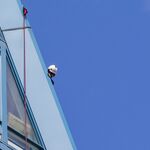Richard White
Senior Member
Just about every pharmacy has a "natural health" section selling St. Johns Wort, Echinacea, and copper bracelets.
Not to mention Horny Goat Weed.
Just about every pharmacy has a "natural health" section selling St. Johns Wort, Echinacea, and copper bracelets.
Well put!Don't perpetuate harmful and racist stereotypes. First, "wet markets" are not what you think they are. Wet markets as defined by asian countries themselves sell meat and produce. Dry markets sell household goods, etc. This idea that they are all sketchy black-markets where you can buy the live exotic animal of your choosing is wrong.
"Wet markets" are nearly indistinguishable from the St. Lawrence Market or the Ontario Food Terminal. Most sell pre-slaughtered meats and live seafood (again, alongside fruit and veg). Wet markets are generally *NOT* selling live animal markets. Live animal markets are usually separate entities.
Don't perpetuate harmful and racist stereotypes. First, "wet markets" are not what you think they are. Wet markets as defined by asian countries themselves sell meat and produce. Dry markets sell household goods, etc. This idea that they are all sketchy black-markets where you can buy the live exotic animal of your choosing is wrong.
"Wet markets" are nearly indistinguishable from the St. Lawrence Market or the Ontario Food Terminal. Most sell pre-slaughtered meats and live seafood (again, alongside fruit and veg). Wet markets are generally *NOT* live animal markets. Live animal markets are usually separate entities.
"Although most wet markets don’t sell live wild animals, the terms 'wet market' and 'wildlife market' are often conflated, according to Aron White, a China specialist at the Environmental Investigation Agency, a London-based nonprofit," adds National Geographic.
I have been in several wet markets in China and other parts of Asia. I am not a health inspector but they seemed to be pretty well kept to me (certainly as sanitary as many of the Asian restaurant kitchens I saw, and ate from - with no ill effects! ) The health regulations here may be stricter but .....Wet markets are notorious for being unsanitary. St. Lawrence Market or the Ontario Food Terminal and other markets in Canada, have strict sanitary rules to follow, and are routinely inspected by the health department.
Wet markets are notorious for being unsanitary. St. Lawrence Market or the Ontario Food Terminal and other markets in Canada, have strict sanitary rules to follow, and are routinely inspected by the health department.
Yes and there is 'wildlife" and 'wildlife" as many (wild) animals that we might not think of as food are actually 'farmed'.There are wet markets with strict sanitary rules in Singapore and Hong Kong. The issue isn't wet market per se - but rules around sanitation and admissible products (e.g. no "wildlife").
AoD
If your argument revolves around a YouTube video, it's probably not an argument.Wet markets are notorious for being unsanitary. St. Lawrence Market or the Ontario Food Terminal and other markets in Canada, have strict sanitary rules to follow, and are routinely inspected by the health department.

Don't forget about alt-right YouTube clones BitChute and Rumble peddling "new age" cures for COVID-19 and distrust of vaccination and masks.Second, we have ridiculous "cultural beliefs" here too. Just about every pharmacy has a "natural health" section selling St. Johns Wort, Echinacea, and copper bracelets. There are acupuncture and "wellness" clinics. There's anti-vax and anti-mask garbage. There's black salve and shark cartilage to treat cancer.
"Complimentary and Alternative Medicine" is a $9B+ a year market here in Canada. Pretty much all of that is new age hooey and has led to numerous stupid deaths in the name of ignoring good and proper science. C&AM is also cultural. It's been growing in *western* society for more than half a century now. It's not just something that happens in "other cultures"; the stupid runs equally throughout humankind. Seemingly a lot in caucasian suburbanites.
It sure won't help; but people here are doing equally stupid things like taking MMS (literally drinking bleach) to avoid it, too.

Miracle Mineral Supplement - Wikipedia
en.wikipedia.org
How did they get "50% of adult Ontarians have received at least one dose" ? Is it purely from the 6.4M doses administered?
Just finished reading this fascinating (and enraging) article in Wired about the bad science behind the WHO and CDC's recommendations on COVID transmission: https://www.wired.com/story/the-teeny-tiny-scientific-screwup-that-helped-covid-kill/
Made me think back to how when I got my vaccine last week, I spent 45 minutes in line in a poorly-ventilated school hallway sharing air that dozens, maybe even hundreds of people had just been breathing. We all dutifully stood two metres apart, but no doors or windows were open, no HEPA air purifiers were running, nobody was monitoring the level of CO2, and people in line in front of me were talking loudly. It was a superspreader event waiting to happen, and totally avoidable.




